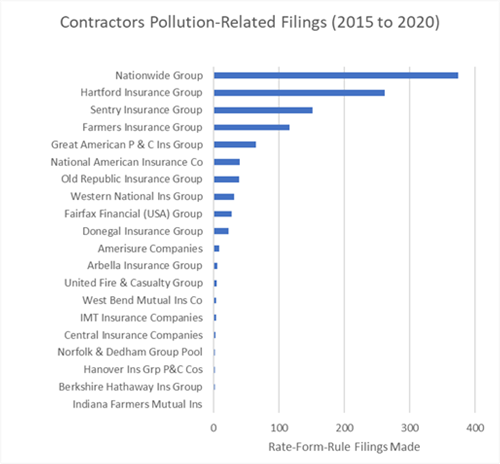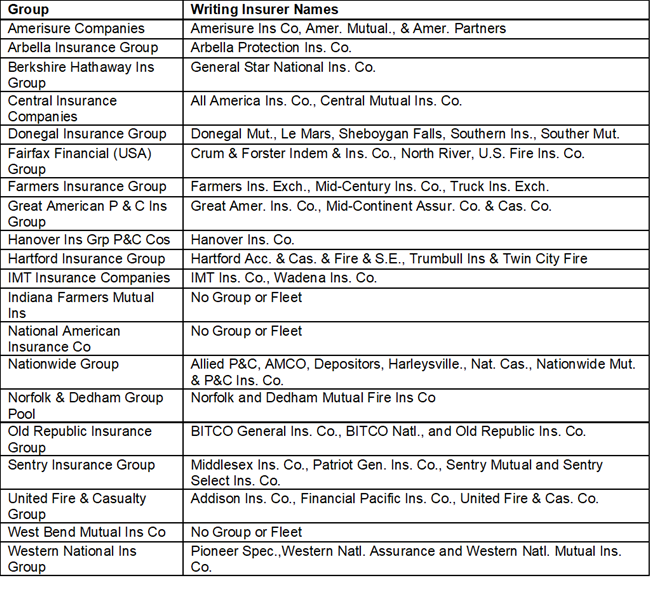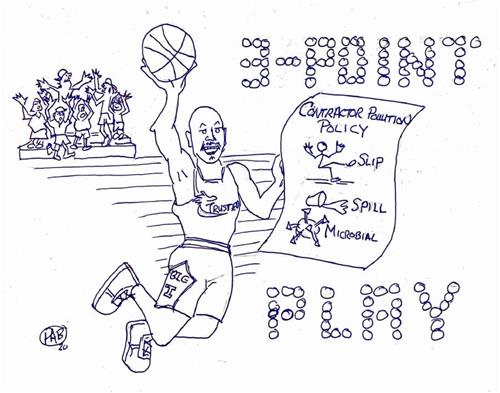When the coronavirus-induced shutdown ends, it's likely many businesses will seek out decontamination firms. If any of those decontamination businesses are your clients, are they properly protected?
Recently, the Big “I” hired a contractor to deep clean the office building at the national headquarters in response to the coronavirus pandemic. I asked our Big “I” CFO, Steve Cocke, if I could see the contractor’s certificate of insurance. Through a longtime association with pollution insurance specialists via Big "I" Markets, I am aware of some of the issues that can arise from not only using hazardous chemicals but also the possibility of mold and bacteria. That means a problem can arise from the contractor’s work itself or in cleaning it up.
I'm pleased to report all the relevant coverages seemed in place, including pollution liability. After giving props to our CFO on the speedy implementation and proactive approach to minimize risks to employees and tenants, I stumbled across information on LinkedIn that, as students of the industry, thought you may be interested to know.
Experts are recommending that businesses and tenants considering property decontamination should look for contractors insured via a contractors pollution liability (CPL) policy. While it's safe to say that a program with a commercial general liability policy and a separate pollution liability policy may have advantages in some situations, for decontamination operations, the single CPL policy is preferred. The reason is two policies and any potential grey area due to a loss involving a virus is better to be insured with a single policy and insurer.
An article, “Factors to Consider When Selecting a Virus Decontamination Contractor” by Randy DeLopst, highlights the need to carefully evaluate any CPL policy when considering decontamination situations, noting that a high percentage of these specialty policies do not cover virus decontamination. Also, of interest to me was that virtually all CPL insurers include contractual liability exclusions for someone becoming sick from a virus.
Expanding on the prevalence of contractual liability exclusions, in a comment on the DeLopst article, Dave Dybdahl, president of ARMR, noted that there are good reasons behind no insurer providing coverage beyond the actual clean-up operation itself. It's simply impossible and cost-prohibitive to guarantee any place is and will remain virus-free. Dybdahl said, "Establishing proximate cause should be impossible in most cases."
Do you advise your contractor clients that may be involved in clean-up operations to consider pollution coverage as well as CGL? When the coronavirus-induced shutdown ends, is it not very likely many businesses will seek out decontamination firms? If any of those are your clients, are they protected?
Of course, be sure to inquire not just about coverage of more traditional inorganic pollution sources like disinfecting agents but also the coverage of outcomes from viruses, mold and bacteria. Coverage is readily available and no doubt you have access to these policies. If you do, excellent. If the contractor is not interested, remember last month's Student of Industry and document your files accordingly.
If you are like me, you're wondering who provides coverage for this stuff. To give you a start on that, I did a search of the rate, form, and rule filings in the last five years in all 50 states that include the word "contractor" in the filing description, while at the same time also filing under the "Line-of-Business 17-Other Liability."
I further restricted my search to programs listed as "pollution." Not a perfect measure of all the active insurers, but you may recognize one or two you know well and that will get you started.

Source: A.M. Best Company, Best's State Rate Filings
Sometimes the insurer group names or fleets are not as recognizable as the insurer the group actually files the policy form under as the policy-issuing insurer. The above groups are listed below with their active insurers in the pollution or contractor filings.

Go ahead, approach your contractor clients and make sure they’re thinking about this. Contractors need not only general liability but also pollution liability. Lastly, be sure you understand the extent coverage is provided for anything to do with microbes such as the coronavirus, as surely any conversation with a client or applicant will turn to that question.
We all missed those three-pointers from the cancellation of March Madness. Make your own three-point play!

This Student of the Industry article is part of a new monthly column exclusively on IAMagazine.com. Keep an eye on Thursday’s weekly News & Views e-newsletter in May for the next off-beat take on current trends in the insurance industry.
Paul Buse is operations and strategic advisor, Big I Advantage®.
